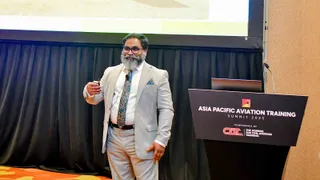Philips and Texas A&M Create Center for Global Health and Innovation
Contact Our Team
For more information about how Halldale can add value to your marketing and promotional campaigns or to discuss event exhibitor and sponsorship opportunities, contact our team to find out more
The Americas -
holly.foster@halldale.com
Rest of World -
jeremy@halldale.com
Philips North America and Texas A&M University System are collaborating to create integrated Emergency Medical Services (EMS) technologies for more efficient and effective coordination of response efforts, and developing point-of-care diagnostics and biosurveillance to help avoid epidemics and pandemics.
As part of the collaboration, Philips and The Texas A&M University System will establish The Center for Global Health and Innovation on the school's campus to help foster public-private partnerships to rapidly design, develop, prototype and showcase healthcare solutions.
The collaboration will focus on three main project areas:
Healthy South Texas Population Health Initiative’s (HST) goal is to build a foundation for prevention, community outreach and engagement. The program will extend wellness services in South Texas by expanding and enhancing disease prevention and control programs. Philips and Texas A&M University System will work to scale and replicate these best practice models of population health management nationally and globally.
EMS Integrated Solutions will work to improve medical resources for emergency medical coordinators and co-develop holistic solutions. The program will include developing a platform and training programs for coordination of EMS supplies and service, as well as solutions that leverage Philips’ decision-support and analytics technologies to help State, City and Municipal administrators prepare for, respond to, and recover from major medical disasters.
Point-of-Care Diagnostics and Biosurveillance will combine Philips’ point-of-care diagnostics for patients with The Texas A&M University System’s work in animal biosurveillance to establish an integrated network for monitoring infectious diseases and standards for the One Health approach that recognizes the health of humans is connected to both the health of animals and the environment and that greater collaboration between healthcare providers focused on these areas can prevent public health threats.
According to Dr. Mark Hussey, Vice Chancellor and Dean of the College of Agriculture and Life Sciences, 70 percent of all emerging diseases are transmitted from animals to humans.
Aloys-Wischmann, head of Philips Research for North America, says Phillips is committed to building a healthy society by improving the lives of three billion people by 2025, working in collaboration with organizations like The Texas A&M University System to understand how it can really impact communities: from outreach programs focused on healthy living and prevention, to understanding how we can improve our ability to react to health threats. He says, “This program puts us shoulder-to-shoulder with those who are on the front line of care, giving us unprecedented insight into developing real-life applications and solutions that can make a difference in human health on both a local and global scale.”


